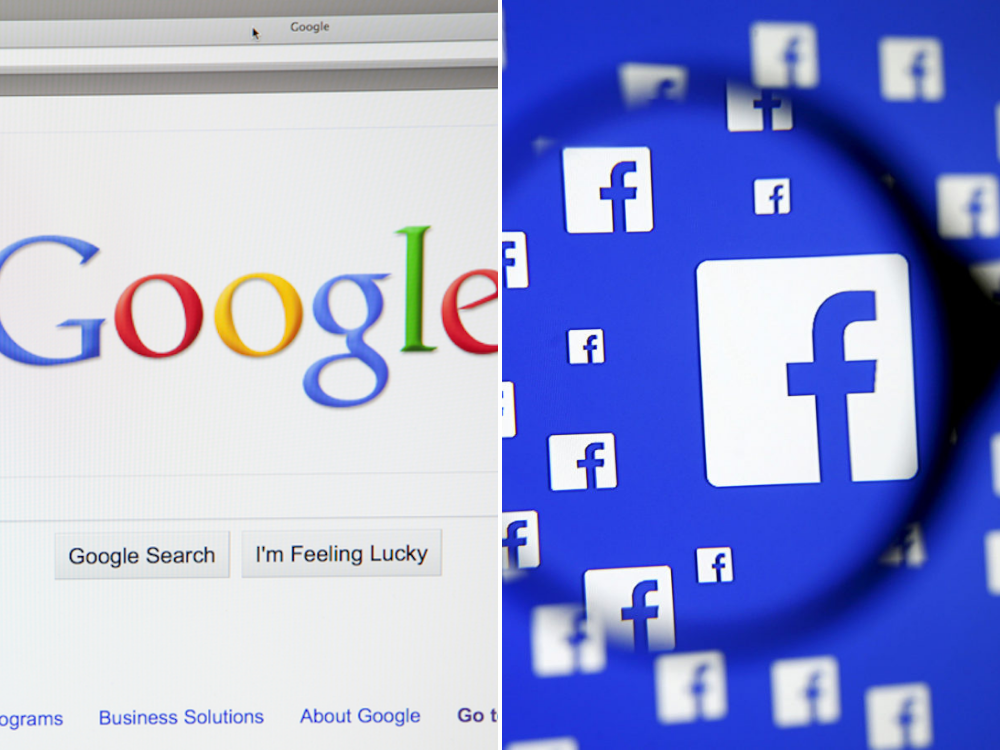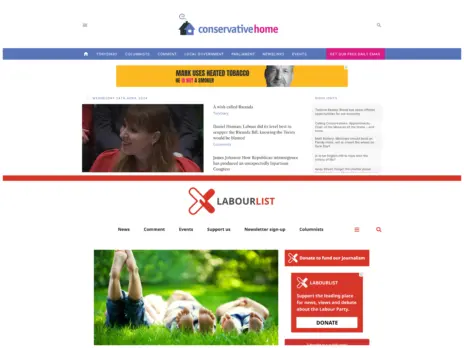
The UK’s competition watchdog is calling on the Government to create new powers to regulate the digital advertising market, saying that greater competition would “improve the quality and accuracy of journalism”.
The Competition and Markets Authority said the market positions of Google and Facebook are having a “profound impact” on publishers, with newspaper websites receiving almost 40% of all visits to their sites through the two platforms.
“This dependency potentially squeezes their share of digital advertising revenues, undermining their ability to produce valuable content,” the watchdog said.
In its 440-page final report on the digital advertising market, a year in the making, the CMA calls for the creation of a pro-competition regulatory regime to govern the behaviour of major platforms like Google and Facebook that are funded by digital advertising.
It noted that of around £14bn spent on digital advertising in the UK in 2019, 80% of this was earned by those two companies – Google with a more than 90% share of the £7.3bn search market and Facebook with more than 50% of the £5.5bn display market.
The CMA acknowledged their services are valued by users and that they help small businesses reach customers but said they have “developed such unassailable market positions that rivals can no longer compete on equal terms”.
The watchdog proposed the creation of a “Digital Markets Unit” with the ability to enforce a code of conduct and impose fines if necessary to ensure platforms cannot exploit their positions in the market.
The code of conduct would address concerns over the relationships between advertisers, publishers and platforms in relation to buying and selling digital advertising, and between publishers, content providers and platforms over hosting content and accessing consumers through their site.
Among other powers, the unit would also be able to order the separation of the platforms if necessary to ensure healthy competition.
CMA chief executive Andrea Coscelli said: “What we have found is concerning – if the market power of these firms goes unchecked, people and businesses will lose out.
“People will carry on handing over more of their personal data than necessary, a lack of competition could mean higher prices for goods and services bought online and we could all miss out on the benefits of the next innovative digital platform.
“Our clear recommendation to government is that a new pro-competitive regulatory regime be established to address the concerns we have identified and regulate a sector which is central to all our lives.”
The CMA agreed in its report with publishers’ concerns that they have “very little choice” but to accept the terms given by Facebook and Google given their dominance.
These include unexpected and unexplained changes to search algorithms that can have a huge impact on a news website’s traffic, having little choice but to use Google’s mobile-friendly Amp format and Facebook’s Instant Articles, and the fact they must give up consumer data without reciprocation.
The CMA said that if online news providers “receive a lower share of advertising revenues than they should, this is likely to reduce their incentives and ability to invest in news and other online content, to the detriment of those who use and value it and to broader society”.
“Issues such as a lack of transparency in the ad tech supply chain exacerbate issues with revenue shares received by publishers, and raise concerns about the long-term sustainability of high-quality and plural news content.”
It added: “Greater competition to Google and Facebook can as a result be expected to improve the quality and accuracy of journalism, and see a decline in the prevalence of so called ‘fake news’.”
The News Media Association, which represents national and regional newsbrands across the UK, said it supported the CMA’s recommendations.
“We hope that the Government will now act swiftly to implement these recommendations and restore balance to a digital ecosystem which for far too long has left news media publishers unable to realise the true value of their journalism,” it said.
The CMA is now leading work with Ofcom and the Information Commissioner’s Office as a Digital Markets Taskforce, which will advise the Government by the end of the year on what action is necessary to promote competition and innovation in digital platform markets.
The CMA said a full market investigation could still take place after the taskforce’s work has concluded if it decides the Government’s response is insufficient.
Google and Facebook respond
Ronan Harris, Google’s vice president for the UK and Ireland, said in a statement: “Digital advertising helps businesses find customers and supports the websites that people know and love. Advertisers today choose from a wide range of platforms that compete with each other to deliver the most effective and innovative ad formats and products.
“We support regulation that benefits people, businesses and society and we’ll continue to work constructively with regulatory authorities and Government on these important areas so that everyone can make the most of the web.”
A Facebook spokesperson said: “Providing a free service, funded by advertising that is relevant and useful, gives millions of people and businesses in the UK the opportunity to connect and share.
“We face significant competition from the likes of Google, Apple, Snap, Twitter and Amazon, as well as new entrants like TikTok, which keeps us on our toes.
“Giving people meaningful controls over how their data is collected and used is important, which is why we have introduced industry leading tools for people to control how their data is used to inform the ads they see. We’re also exploring new ways through which people can move their data to other services through our Data Transfer Project.
“We look forward to engaging with UK government bodies on rules that protect consumers and help small businesses rebuild as the British economy recovers.”
Picture: Reuters/Dado Ruvic/Illustration/File Photo
Email pged@pressgazette.co.uk to point out mistakes, provide story tips or send in a letter for publication on our "Letters Page" blog






